Thursday Feb 19, 2026
Thursday Feb 19, 2026
Friday, 4 September 2020 00:05 - - {{hitsCtrl.values.hits}}
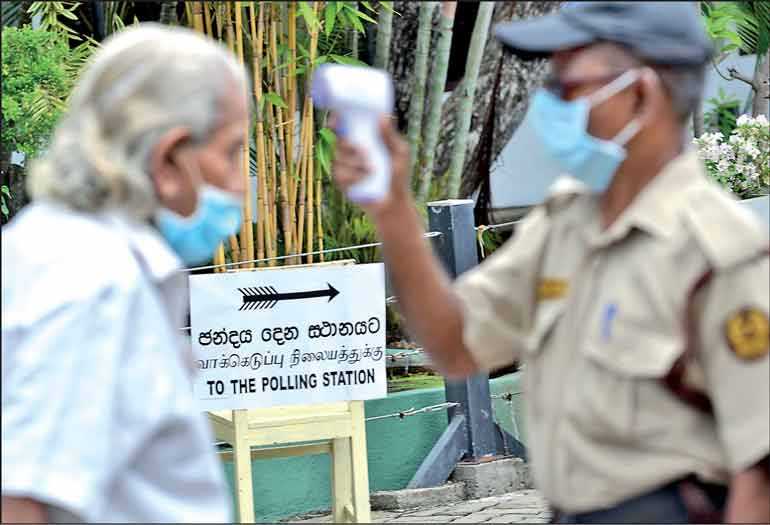
It is no exaggeration to state massive amounts are spent on elections and according to media reports a sum of Rs. 10 billion has been expended at the recently concluded Parliamentary Elections. The Provincial Council Elections are due to follow, after which we could expect the Local Government Elections, and all of which will result in the expenditure of a substantial sum
– Pic by Shehan Gunasekara
The Parliamentary Elections have been concluded successfully and the voters of the country have exercised their franchise in electing their representatives. Before I proceed, the Election Commission, 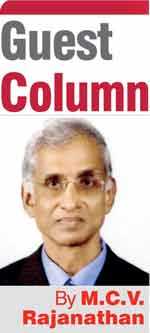 the Police, the Security authorities and the Health sector should be commended for their collective steps taken in conducting this election in the midst of a global pandemic. Their efforts towards conducting this election, meeting many challenges, and most importantly creating a peaceful environment, need to be appreciated and commended.
the Police, the Security authorities and the Health sector should be commended for their collective steps taken in conducting this election in the midst of a global pandemic. Their efforts towards conducting this election, meeting many challenges, and most importantly creating a peaceful environment, need to be appreciated and commended.
Even though the voter turnout was not up to the expected level, the overall percentage of 75% could be considered remarkable in view of the risk faced by the voters, mainly among the senior citizens whose movements are restricted due to the coronavirus. They had a genuine fear of being exposed, hence didn’t want to take the risk which was of no benefit to them. There was lack of interest by a large percentage of the voters, as they felt the interim Government was in a comfortable position to win.
The Election Commission successfully executed its responsibility in meeting several challenges. They have never faced such challenges and difficulties in the past. The guidelines stipulated by the health authorities were strictly adhered to, in addition to all other stipulations as we have witnessed at the polling booths. All election officials exercised utmost courtesy in executing their responsibilities in spite of the difficult situation they were in.
This election was the most peaceful election ever witnessed by the country. There were no cut-outs, no posters etc. There were no incidents of any violence reported, apart from a few isolated incidents of poll violations. The country was at complete peace, and people were moving about freely with their day to day activities during and after the elections, particularly on the day the counting was in progress. There were no signs of any election. Notably, there were no foreign election monitors, unlike in the past elections.
To share from my own memory lane, I vividly remember in 1998, I had to attend a bank training program in Hamburg, Germany. According to our itinerary, we were to arrive at our destination a day prior to the German General Elections which was held on a Sunday. We were naturally concerned as we had to arrive in the midst of a General Election. We arrived on the day prior to the election and made use of the opportunity to visit a few polling stations in Hamburg as “unofficial observers” to witness their polling process. Everything was peaceful, and there was hardly any sign of an election. Results were announced on the same night, and the incumbent government was defeated. Based on the Sri Lankan experience, there was some trepidation on our part to report at the Bank to commence our training program on the following day, which happened to be a Monday. However, everything was peaceful, even though the incumbent government was defeated. The officials of the bank in welcoming us quipped, “Your arrival has changed the Government”. On that day, I had a dream, whether I will ever witness such an environment in Sri Lanka during an election. I am pleased to note my dream has become a reality, thanks to the independent Election Commission, the Police, the security authorities and notably the health sector. I am confident this trend will continue and we could be a role model for some of our neighbouring countries. In fact, on the day of the election, there was an international 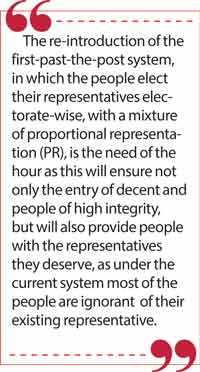 conference at which several delegates participated without any fear or concern. We are the only country next to South Korea to have successfully conducted an election in the midst of the global pandemic. New Zealand, which was scheduled to conduct its General Election, has postponed it by one month due to the second wave of coronavirus. Perhaps they could learn from the Sri Lankan experience towards conducting an election in the midst of the pandemic.
conference at which several delegates participated without any fear or concern. We are the only country next to South Korea to have successfully conducted an election in the midst of the global pandemic. New Zealand, which was scheduled to conduct its General Election, has postponed it by one month due to the second wave of coronavirus. Perhaps they could learn from the Sri Lankan experience towards conducting an election in the midst of the pandemic.
Now that the elections are over, the Cabinet is sworn in, all the newly-elected Members of Parliament have taken their oaths, and the President has outlined his policy statement, it is back to business. The Government has obtained a massive majority, even though they are short of a two-thirds majority by a few seats. This is the first time in the political history of the country that the two major parties, namely the Sri Lanka Freedom Party (SLFP) and the United National Party (UNP), have been crushed. Both parties will have only one solitary representative in the current Parliament. The SLFP, although contesting under an alliance with SLPP, won only one seat under their official party label. The UNP, thanks to the National List, was able to obtain representation based on the overall votes obtained.
The party is yet to nominate a member for their National List seat, as it appears there are many stakeholders. It will be very interesting to see whether the party will deviate from its official policy of not nominating any defeated candidates. The new Parliament met without any representation from the Grand Old Party. The nomination of the representative of the Ape Jana Balawegaya (AJB) has still not been confirmed, in view of the internal divisions within the party.
It is heartening to note in the current Parliament, a total of 81 new members have been elected for the very first time. This is inclusive of the 16 new members from the National List.
The President, in his policy statement outlined in Parliament, reiterated the introduction of a new constitution, and notably, amendments to the existing electoral system. It has been reported these changes will be made to ensure the stability of Parliament and people’s direct representation.
Since the constitutional amendment and the existing electoral process have taken centrestage, I wish to place my views covering some of the flaws in the existing electoral process, for the benefit of the framers and our readers. I should however confess, I am not a constitutional expert, and my views are based on my practical knowledge, experience, and as a keen follower of the political developments in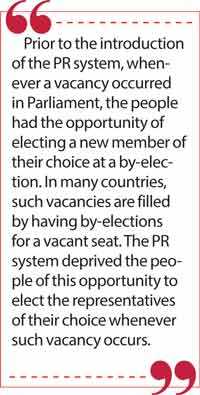 our country as a student of Politics. I have referred to these flaws in some of my previous articles. However, it may have gone unnoticed, due to the election fever which prevailed at that time.
our country as a student of Politics. I have referred to these flaws in some of my previous articles. However, it may have gone unnoticed, due to the election fever which prevailed at that time.
I will however, restrict my opinion only to the electoral reforms.
Proposed amendments
First-past-the-post system with a mixture of PR
In many of my previous articles I have advocated the re-introduction of the “first-past-the-post” system, replacing the existing PR System or a mixture of both. A vast majority of the people of the country feel the existing electoral system is not suited for the democratic form of Governance. It is vital and interesting to examine some of the flaws at this crucial time.
Under the existing PR system, the procedure adopted in electing a representative leads to candidates from the same party firing shots at each other to obtain preferential votes. Candidates are compelled to compete not only with their rivals in the opposing parties, but their rivals within their own party as well.
Further, if a person is interested in serving the people and entering Parliament, such personalities are compelled to campaign not only in their chosen electorate as the organiser, but in the entire District.
There have been several instances where such organisers, even though they won their electorates, could not gain entry to Parliament as they failed to win the District, while some others even though they failed to win their electorate, were able to gain entry due to their ability to win the entire District. This, in my opinion is a serious flaw, which needs to be rectified towards having an effective system of representation.
At the recently concluded elections, we have seen many instances of interparty clashes for preferential votes. Some of the candidates from the same party even went to the extent of challenging the final preferential vote results for their own self-satisfaction, thereby undermining the electoral process. It is noted there is no room for any manipulation as the election and the counting of preferential votes are conducted in a transparent manner, as explained by the Election Commission.
It is no exaggeration to state that under the existing proportional representation system of electing representatives, many of the voting population didn’t even know their candidates, apart from a handful who were able to give wide publicity and market their preference number. Many leading and popular candidates lost the elections, due to their inability to market their preference number.
It is reported a large amount of votes representing 4.5% of the total votes polled were rejected at the recent Parliamentary Elections. At the last Presidential Elections only 1% of the total votes polled were categorised as spoilt votes. Whether this is deliberate or due to lack of understanding of the electoral process is not clear. However, the format of the ballot paper, which had to accommodate numerous symbols, in addition to the preferences, may have confused the voters and contributed towards the rejection. Candidates well accepted and respected in their chosen electorates at times fail to enter Parliament, even though a majority of their electorates vote for them. The re-introduction of the first-past-the-post system, in which the people elect their representatives electorate-wise, with a mixture of proportional representation (PR), is the need of the hour as this will ensure not only the entry of decent and people of high integrity, but will also provide people with the representatives they deserve, as under the current system most of the people are ignorant of their existing representative.
The 1978 Constitution introduced by the then-powerful UNP Government was a complete departure from the previous electoral process of electing representatives through the electorates. The previous system allowed candidates from recognised political parties and independent candidates to contest in any electorate of their choice. Prior to 1978, there were many well-known and popular independent Members of Parliament not aligned to any political party. In addition, there were a few multi-member constituencies in certain electorates, to ensure the representation of the minorities.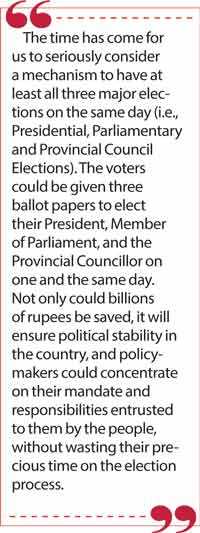
The existing system deprives the entry of any independent candidates, unless they form a group and file in their nominations in the District. The success of such independent groups are very remote. As a matter of fact, there were no independent members of Parliament after the introduction of the 1978 Constitution.
National List
The existing system provides for the nomination of 29 members through the National List, while 196 members are elected under the PR system. All parties are entitled to nominate members based on their overall performance. Many civil organisations and leading personalities have been consistently appealing to the party leaders to refrain from appointing defeated candidates through the National List. It is heartening to note none of the parties, other than the TNA, have nominated any defeated candidates through the National List to the current Parliament. In the previous Parliament, there were 11 defeated candidates, and some of them were rewarded with ministerial responsibilities. The SLPP was very smart in finalising their National List within a couple of days. All other parties took considerable time, as it is reported some of the defeated candidates were attempting to enter through the National List. The UNP and AJB are yet to confirm their nominations. The framers of the constitution envisaged the introduction of the National list mainly to accommodate intellectuals and technocrats, not in a position to contest and win at an election, as the country could immensely benefit from their expertise. The original purpose for which this was introduced does not appear to have been achieved. The existing limitation of 29 members under the National List needs to be re-examined.
The 1972 Constitution introduced by the-then United Front Government of Sirimavo Bandaranaike completely abolished the National List or the “Appointed MPs” as they were called then. All candidates had to enter Parliament through the votes of the people. Prior to the introduction of the 1972 Constitution, there was a provision to appoint MPs under the clause of “Appointed MPs” which I believe was restricted to only six members, and reserved for certain communities.
It’s undesirable for defeated candidates to stake any claim through the National List. They should have the courage and conviction to bow to the people’s wishes, accept the verdict, and respect democracy, as Parliament is the temple of democracy.
Parliamentary vacancies
Prior to the introduction of the PR system, whenever a vacancy occurred in Parliament, the people had the opportunity of electing a new member of their choice at a by-election. In many countries, such vacancies are filled by having by-elections for a vacant seat. The PR system deprived the people of this opportunity to elect the representatives of their choice whenever such vacancy occurs.
The incumbent Government is deprived of testing public opinion at regular intervals whenever an opportunity arises due to the death, resignation, or a member forfeiting the seat consequent to an election petition. Prior to 1978, all such vacancies were filled after a by-election. This gave an opportunity to the people to give a message to the Government and the Opposition on several vital issues, affecting not only the particular electorate, but also the entire country. In the absence of regular opinion polls in our country, such an exercise will be a very valuable tool for all parties to ascertain the acceptability of their direction and policies.
The replacement of this system by PR has resulted in a situation where such vacancies are now filled by the candidates defeated at the previous elections gaining entry to Parliament, based on their order of preference. Individuals defeated at the previous elections become Members of Parliament overnight, and the voters are deprived of an opportunity to elect a new representative of their choice. It will be desirable if the proposed constitutional reform gives due consideration to the reintroduction of by-elections.
Anti-defection law
Now that the Government has obtained a near two-thirds majority, serious consideration should be given towards the introduction of an “anti-defection law” which will effectively prevent the members from crossing over to other parties. If they cross over, they should automatically forfeit their seat and seek re-election. This law is effective in the Indian Constitution, which has effectively shut the door to any crossovers. This will also ensure the stability of the Government.
Dissolution of Parliament
The 19th Amendment deprived the President of the power to dissolve Parliament, unless it is voted by two-thirds of the Members of Parliament. Such an exercise is unthinkable and unrealistic, as no member will give their consent for such a premature dissolution. The framers of this stipulation failed to realise this aspect and its reality. This resulted in the major constitutional crisis in October 2018, and the Supreme Court by its unanimous decision ruled the then-President didn’t possess the power nor authority to dissolve Parliament before the expiry of the stipulated period of 4 and a half years. This even deprived the new President of dissolving the Parliament immediately after his victory in November 2019, which would have prevented the calamity of having the elections under the global pandemic.
Presidential election and nomination of candidates
All of us are aware at the last Presidential Election, 34 candidates from various parties and colours contested. Many of the candidates were well aware their prospects of victory was remote. Then one might ask for what purpose they filed in their nominations. Some filed in their nominations as proxies for the major candidates, while some others may have filed in their nomination with the aim of gaining publicity. According to the media reports, this cost the country and the Election Commission an additional sum of Rs. 2 billion. It also contributed in confusing the voters in appropriately identifying their preference from the long ballot paper, which was two feet in length, as it had to accommodate all 34 candidates.
Serious consideration should be given towards amending the eligibility criteria to make it mandatory for a candidate to at least obtain a stipulated minimum number of votes from the total votes polled. The deposit should be increased substantially, or in the alternative they should be stipulated to provide a Bank Guarantee, which is equivalent to cash. This will ensure the entry of only serious candidates, and will result in the elimination of all other unwanted candidates. This will be a blessing not only for the Election Commission, it will also enable the voters to select their preferred candidate without any hindrance.
Expenditure on elections
It is no exaggeration to state massive amounts are spent on elections and according to media reports a sum of Rs. 10 billion has been expended at the recently concluded Parliamentary Elections. The Provincial Council Elections are due to follow, after which we could expect the Local Government Elections, and all of which will result in the expenditure of a substantial sum. Elections after elections. The expenditure is bound to rise in view of the existing coronavirus threat and adherence to the precautions set by the Health Authorities as done in the recent elections. The time has come for us to seriously consider a mechanism to have at least all three major elections on the same day (i.e., Presidential, Parliamentary and Provincial Council Elections). The voters could be given three ballot papers to elect their President, Member of Parliament, and the Provincial Councillor on one and the same day. Not only could billions of rupees be saved, it will ensure political stability in the country, and policymakers could concentrate on their mandate and responsibilities entrusted to them by the people, without wasting their precious time on the election process.
In the United States, the people elect their President, Members of Congress, and Senators on one and the same day, in addition to other State elections. However, the Senators and Members of Congress are elected at regular intervals for a term of 6 years and 2 years, respectively. The Presidential Election is held every four years on the first Tuesday of November of the stipulated year.
The Government is in a very commanding position with an overwhelming mandate, which is a golden opportunity to enact a new constitution or amend the existing Constitution and the electoral process, hence this opportunity should be fully utilised and not missed.
It is the hope and aspiration of the people that a suitable and effective Constitution and an electoral process which reflects the true will of the people are introduced, which is the need of the hour.